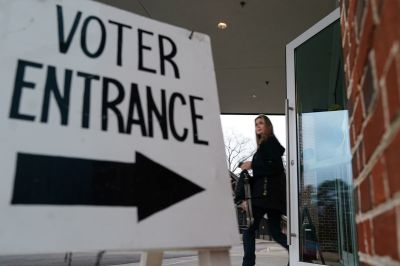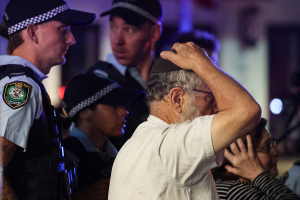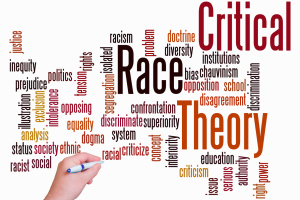Why voting for Christians is a biblical issue

As we approach the November elections, many Christians find themselves grappling with the decision of whether to vote and how to navigate the divided political landscape. New research from Dr. George Barna, the director of Research at the Cultural Research Center at Arizona Christian University, indicates that as many as 104 million people of faith are unlikely to vote in this upcoming election — and among those, 32 million self-identified Christians who regularly attend church won’t cast their ballots. The most common reason: a lack of interest in politics and elections.
In a world where secular values often clash with biblical truth, it's crucial that Christians understand their responsibility to engage in the electoral process and to vote. This engagement is not just a civic duty, but a biblical imperative.
Many will rightly remind you that we should not place our eternal hope in political parties or candidates. However, this theological truth doesn't absolve us from the responsibility to be good stewards of our citizenship and to vote.
Scripture provides clear guidance on our role in society. In Jeremiah 29:1-14, God instructs the Israelites to "seek the peace and prosperity of the city" where they were exiled. God clearly desires we actively participate in shaping the communities where He has placed us for the sake of the Gospel.
Acts 17:26 reminds us that God "sets the boundaries of people and nations, determining their appointed times in history." We are not here by chance; God has a purpose for you and me in these divided times. As such, we have a responsibility to steward the gift of citizenship wisely.
When considering how to vote, whether it is the candidates or various ballot initiatives, we must remember that we are commanded to "love our neighbor." However, the love Scripture demands from us has parameters and definitions that are counter to culture’s definition of love. As 1 Corinthians clearly outlines, "Love always protects" and "rejoices with the truth." Our voting choices should reflect this biblical definition of love, voting for the candidates and issues that best seek to protect the vulnerable and uphold objective truth.
One of the biggest overarching issues in this election is protecting vulnerable children from radical transgender ideology. A Christian author asked a poignant question in a recent article: "Should a physically healthy young girl be encouraged to cut off her healthy body parts with the blessing of the state?" The answer to this question obviously matters for her, her family, and her future. It also matters for the spiritual and cultural health of our nation. This question underscores the critical nature of our voting decisions and their impact on individuals and society as a whole.
Voting is a stewardship issue. Like the servants in the parable of the talents, we have been entrusted with the gift of freedom, and the responsibility to participate in our political process. Inaction out of fear or indifference is not an option that honors God.
Jonny Ardavanis, teaching pastor at Stonebridge Bible Church, says "A failure to vote ... is a failure to, I believe, obey the calling that we have to uphold the righteousness in our land." He further notes that "Certain things politically are more theological than they used to be," highlighting the increasing importance for Christians to vote in every election.
We must acknowledge that we're not voting for perfect candidates. "Unlike a marriage or a business partnership where there are effectively unlimited alternatives, in this election, we have only two viable choices," states businessman Bill Ackman.
Our task as Christians is to discern which candidate's policies align more closely with biblical principles and the common good. We will always have imperfect options, and we should consider which candidate is moving in a better direction and whose policies best protect the vulnerable, especially children. It's crucial to dig past campaign slogans to understand the positions of both parties and their leading candidates on important moral issues.
Some argue that voting for a "lesser evil" is morally problematic. However, allowing a greater evil to take power through inaction is arguably worse. As Christians, we are called to restrain evil and promote good where we can. God calls on us to play an influencing role in our culture, raising our voices. If we don’t, the wicked certainly will.
"When the righteous prosper, the city rejoices; when the wicked perish, there are shouts of joy. Through the blessing of the upright a city is exalted, but by the mouth of the wicked it is destroyed" (Proverbs 11:10-11).
We are called to this place and this time for a purpose. As we approach this election, let us heed the example of the men of Issachar, who "understood the times and knew what Israel should do" (1 Chronicles 12:32). We must diligently research the candidates and issues, seeking wisdom through Scripture and the Holy Spirit so we also can understand the times and know what we should do.
We must approach this election with prayer, discernment, and a commitment to biblical principles. Our vote is not just a political act, but a spiritual one — a tangible way we can love our neighbors, protect the vulnerable, and uphold objective truth in our community, state and nation.
As we cast our ballots, let us do so with the conviction that we are fulfilling our God-given role in shaping our nation for His glory.
Josue Sierra is the Director of Communications for the PA Family Institute, and a writer and speaker on Biblical worldview and Christian discernment in cultural engagement. He lives in the Mid-Atlantic region together with his wife and 5 kids.



























